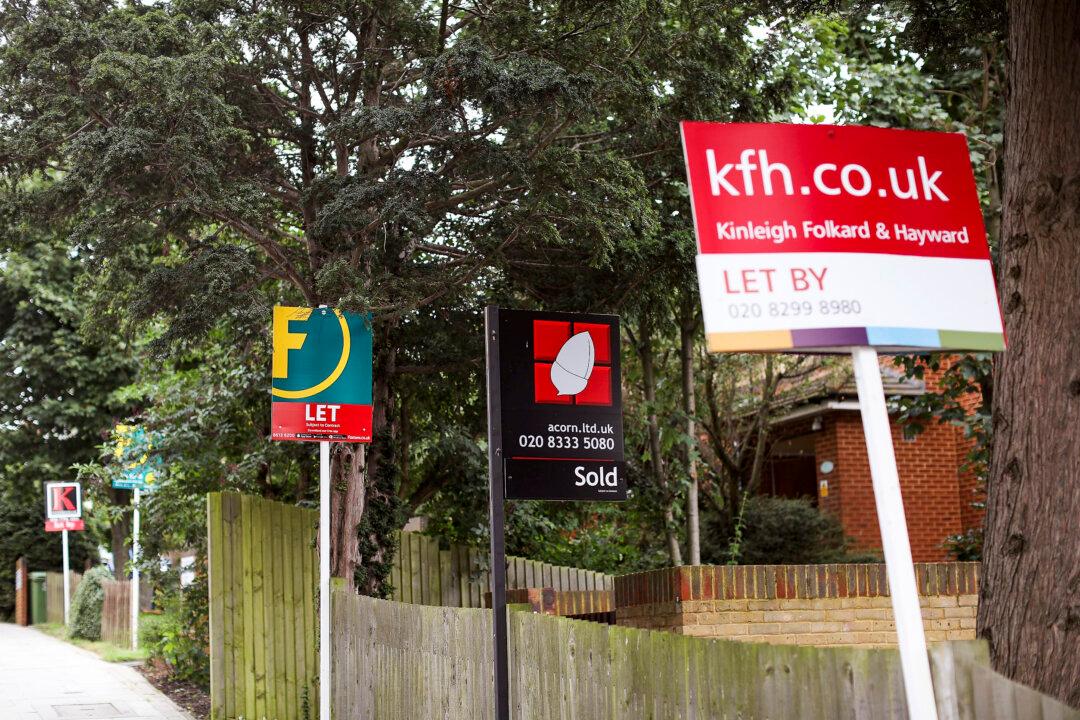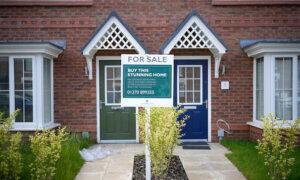Average British households looking to buy their first home need to earn more than £60,000, with figures varying across the country, property website Zoopla said on Thursday.
The figures are based on the assumption that buyers would be offering a 20 percent deposit and borrowing 3.3 times their income as a mortgage.
The average asking price for a home in the UK is £250,000, with the price tag ranging from £130,000 in Scotland to £270,000 in England.
The regional differences in prices and the required incomes mean that buyers in Wales, northern England, and Scotland face different challenges to those looking to buy in London.
“Access to home ownership requires lower incomes in much of Wales, northern England and Scotland. The greatest challenges are in southern England, especially London where first-time buyers are already buying cheaper homes than the average in an effort to try and improve affordability,” said senior property researcher at Zoopla, Izabella Lubowiecka.
Buyers looking to get on the property ladder in London need to make £103,000 as a household in order to be able to afford the average asking price of £425,000.
One of the most expensive areas in London, Kensington and Chelsea, features an average asking price of £800,000. To afford that, a household needs to be earning more than £190,000.
The lowest income required for first time buyers was estimated at £17,000 and is required to buy a £70,000 property in East Ayrshire, Scotland.
The average size of a deposit of around £60,000 is 160 percent higher, compared to the £23,000 required in 2005, according to the Building Societies Association (BSA).
Representing all 42 building societies, as well as seven of the larger credit unions in the UK, the BSA found that more than half of people think the deposit required to buy a home is too high.
Britons find it hard to afford monthly mortgage repayments and consider them a “barrier to buying a home,” while 65 percent find raising a deposit an obstacle, a BSA report found.
Interest Rates and Manifestos
On Thursday, the Bank of England’s Monetary Policy Committee (MPC) held the interest rates at 5.25 percent. The bank’s decision to hold the interest rate means that homeowners won’t see imminent relief in their monthly mortgage repayments.The MPC meeting comes following the news of inflation reaching the bank’s 2 percent target in May. The bank noted that key indicators of inflation persistence have continued to moderate, but remain elevated.
The unchanged interest rate in June didn’t come as a surprise for economists, who estimate that the soonest cuts will take place is in August.
“With inflation dropping to almost the 2% target, many mortgage borrowers might have been hoping for a cut in the Bank Rate today. The decision to keep rates at 5.25% will be very disappointing news for them, as well as those looking to buy their first home,” said Paul Broadhead, head of mortgage and housing policy at the Building Societies Association, in a statement.
“We still anticipate the Bank Rate will reduce this year, however this is happening much later and slower than we had anticipated earlier in the year. Homeowners who are coming to the end of a fixed-rate mortgage this year, will need to prepare for an increase in their mortgage payments,” he added.
Ahead of the general election on July 4, Mr. Broadhead said he was pleased to see the main political parties recognising the struggles of homebuyers. However, he warned that it would take more than short-term government schemes to “fix our broken housing market.”
The Conservatives, Labour, and the Liberal Democrats have all pledged to build at least 1.5 million new homes over the next Parliament. All three parties also said they will ban no-fault evictions for renters and reform or end the leasehold system.
The Tories plan to introduce a new Help to Buy scheme and a mortgage guarantee scheme, with Labour manifesting similar plans.







